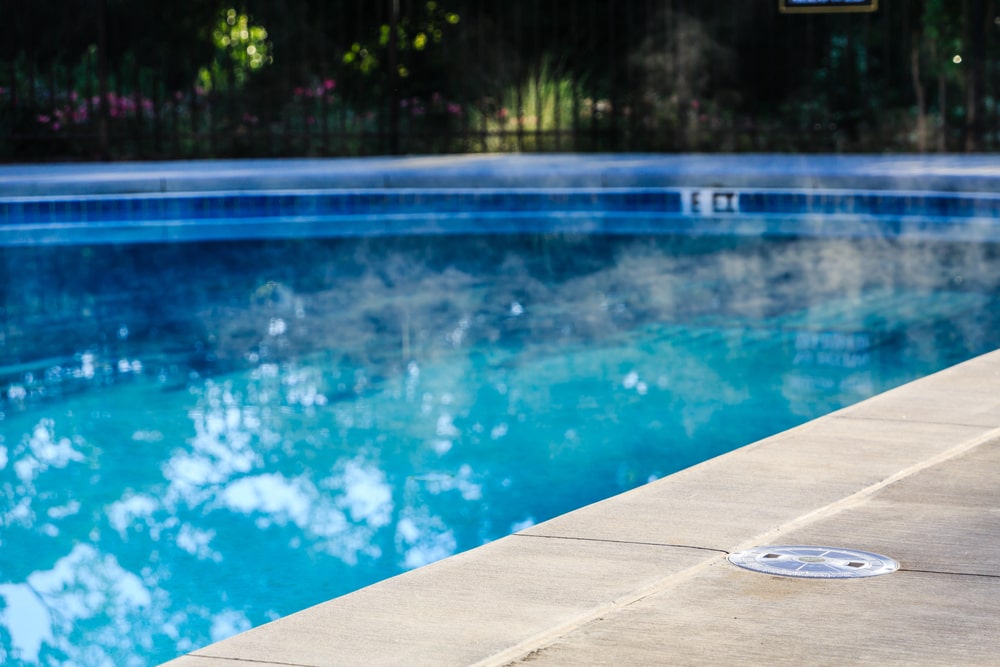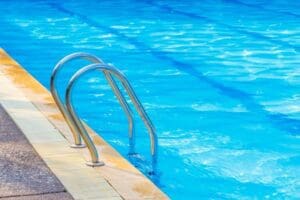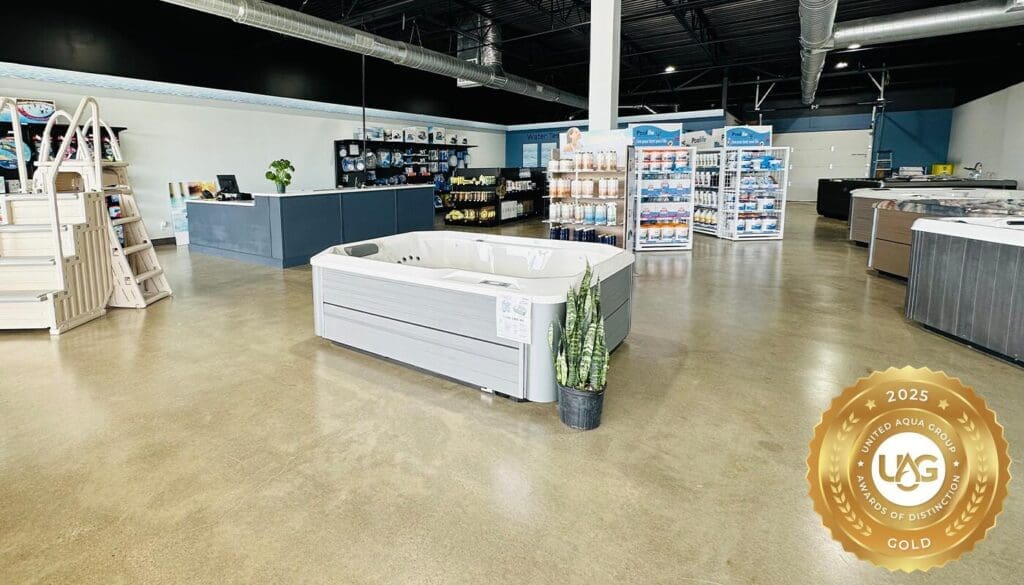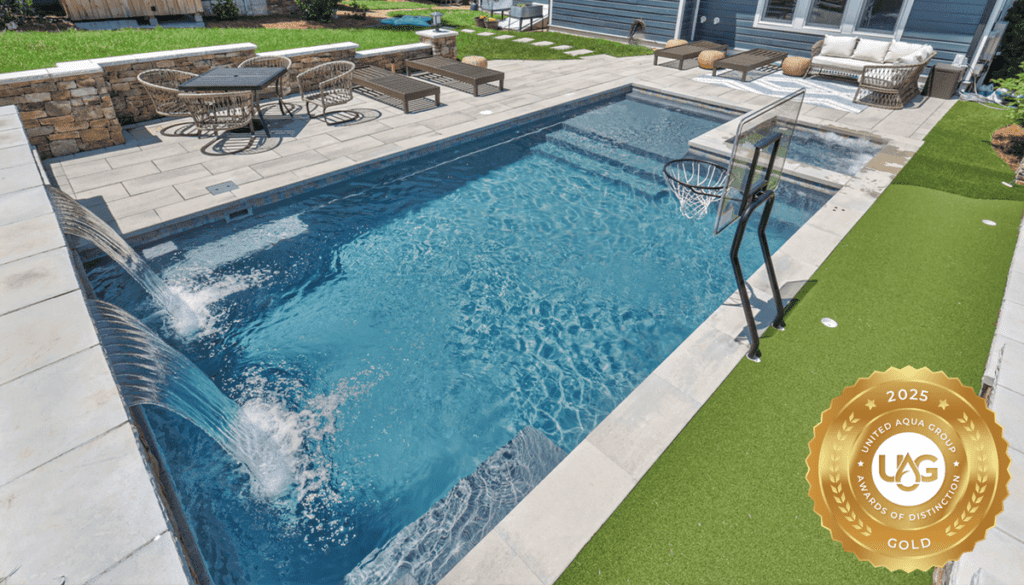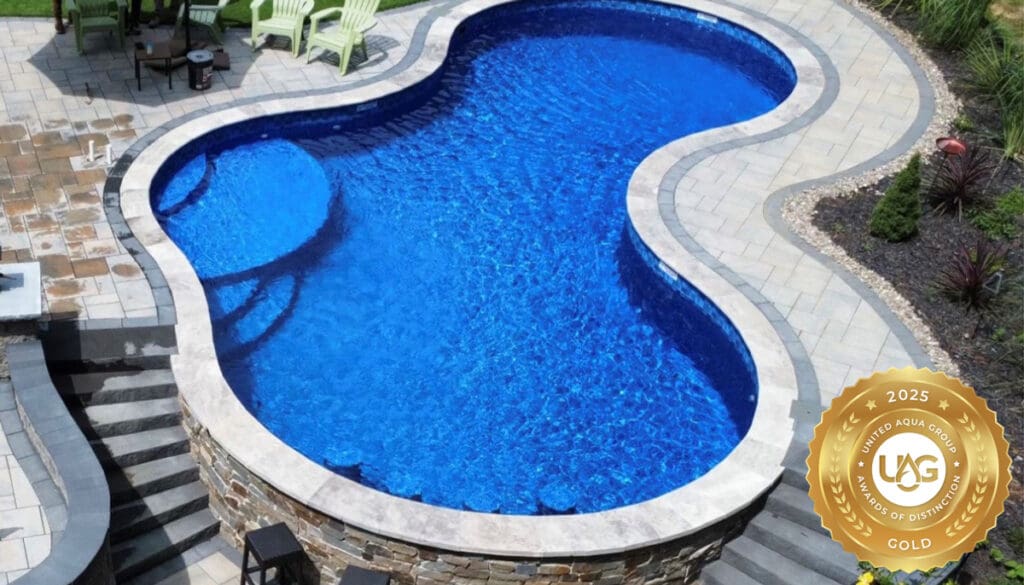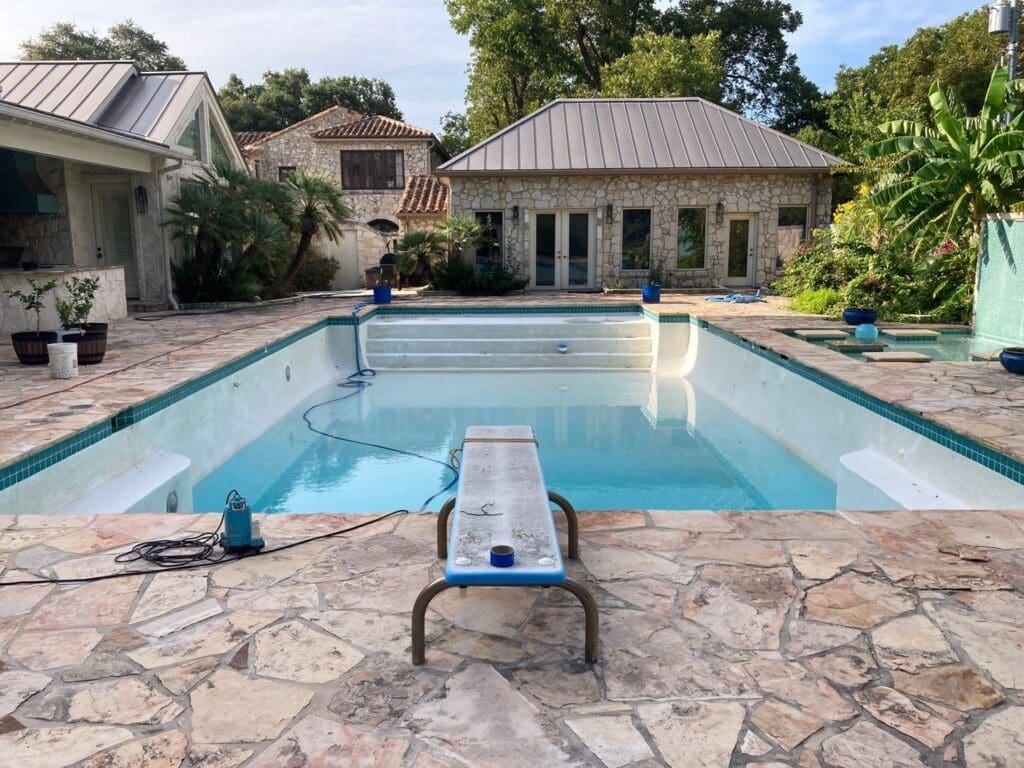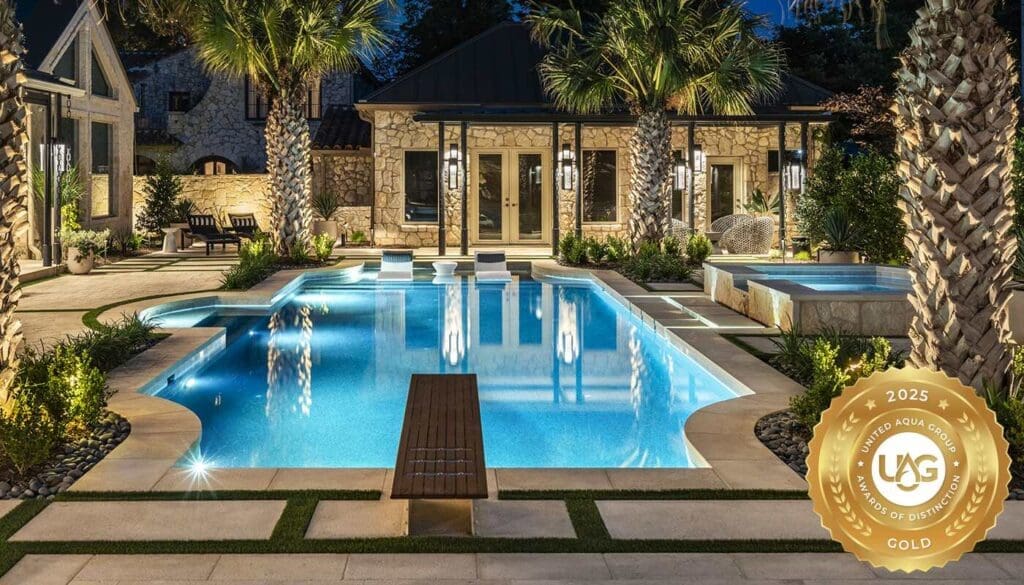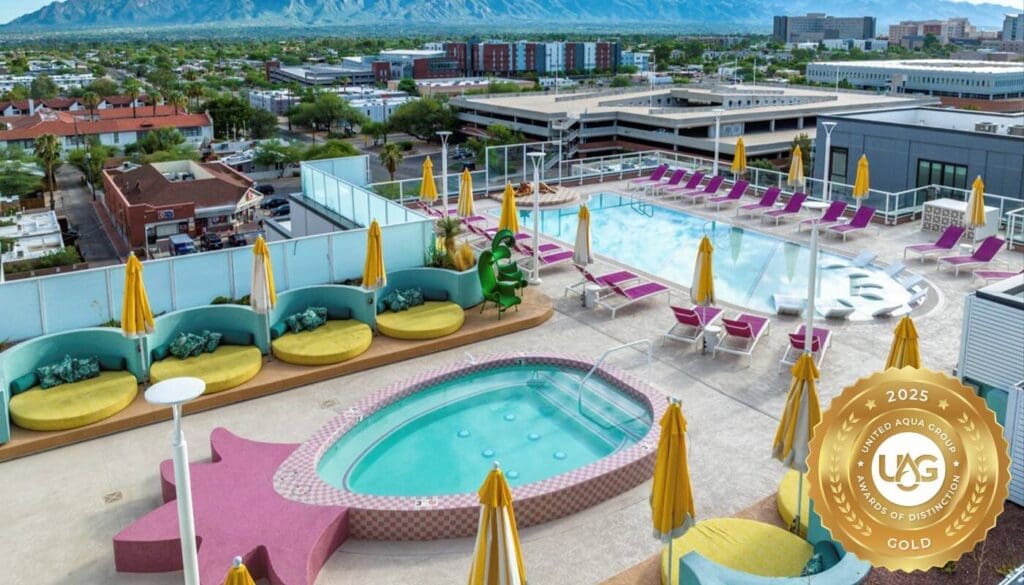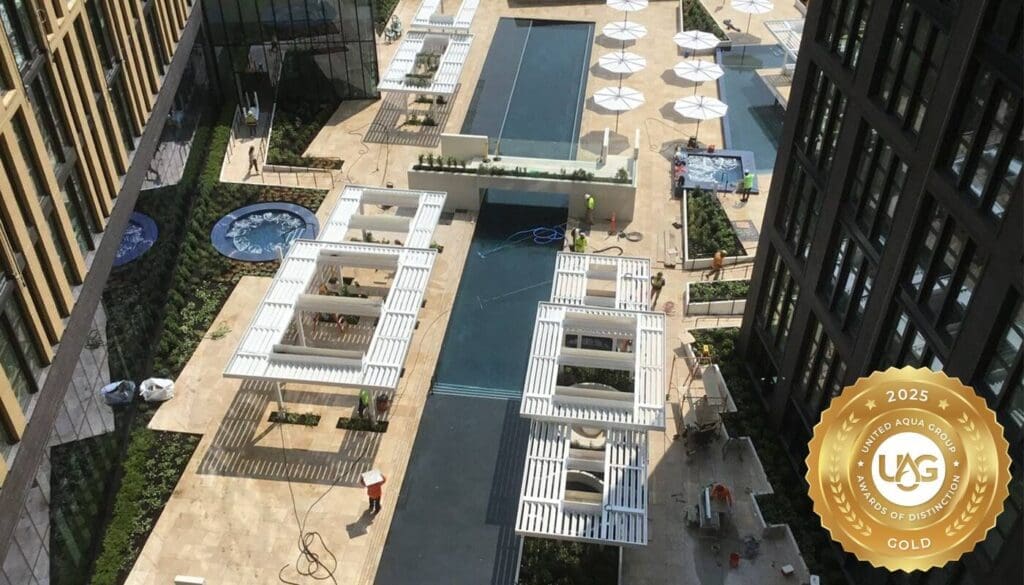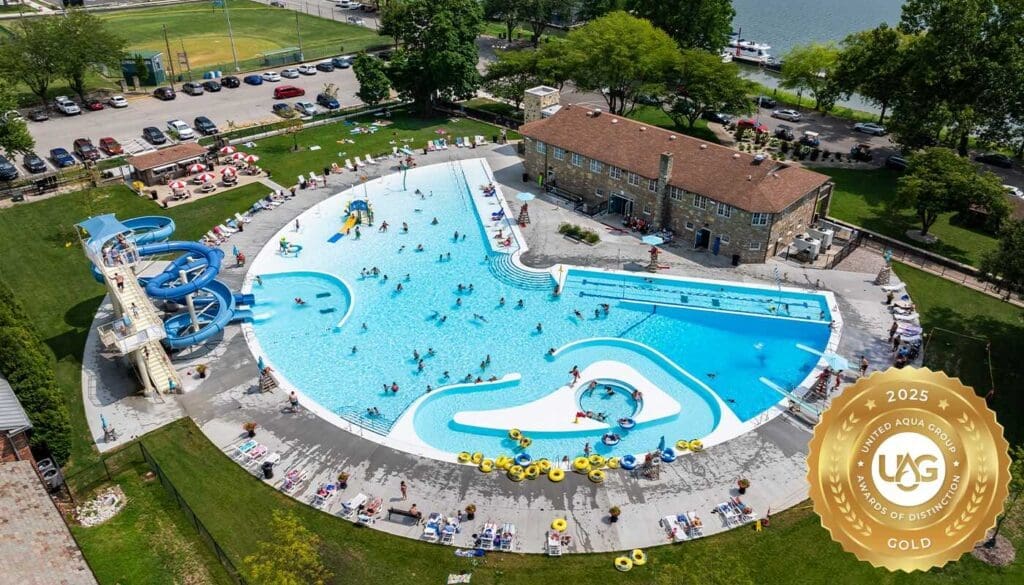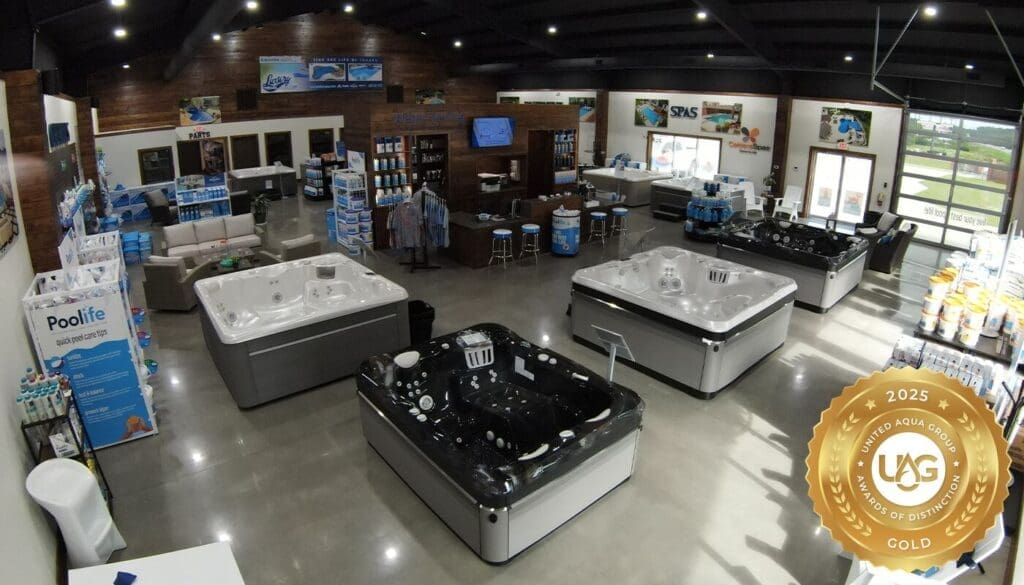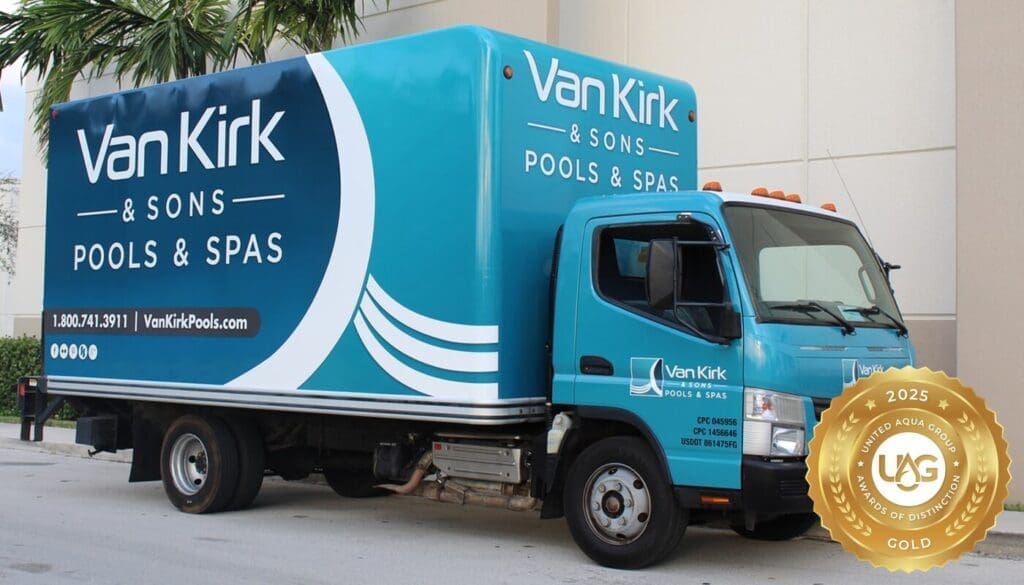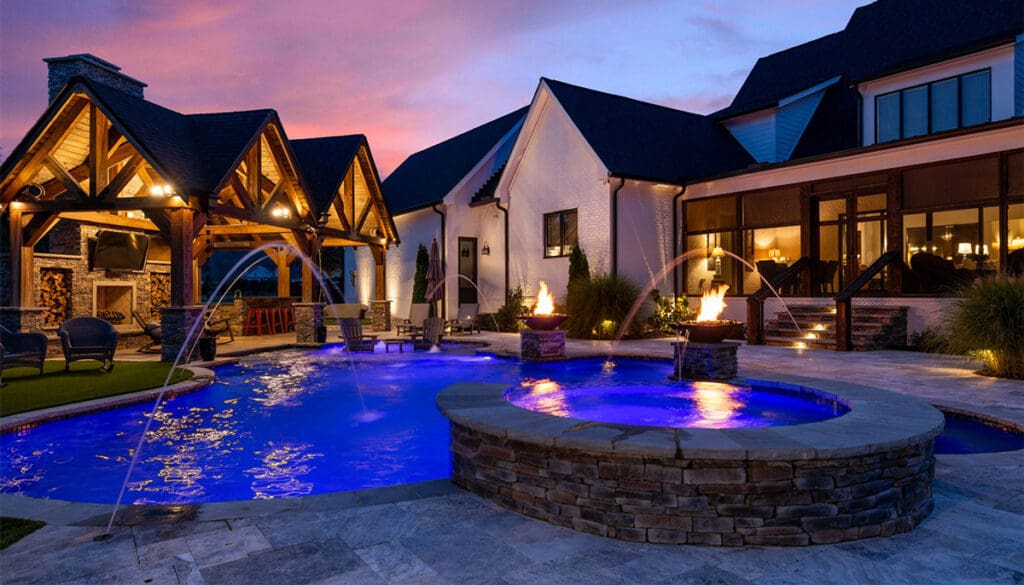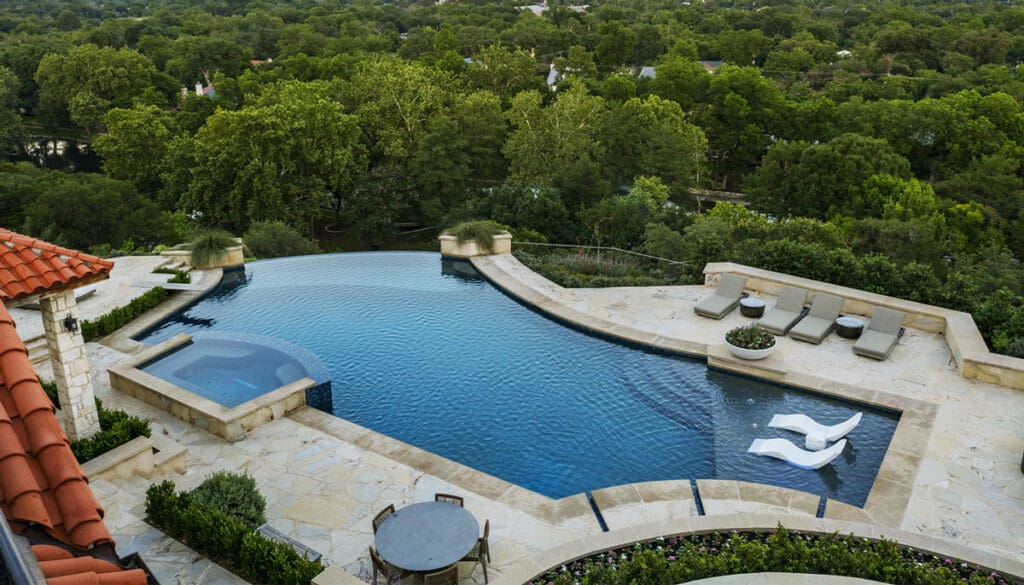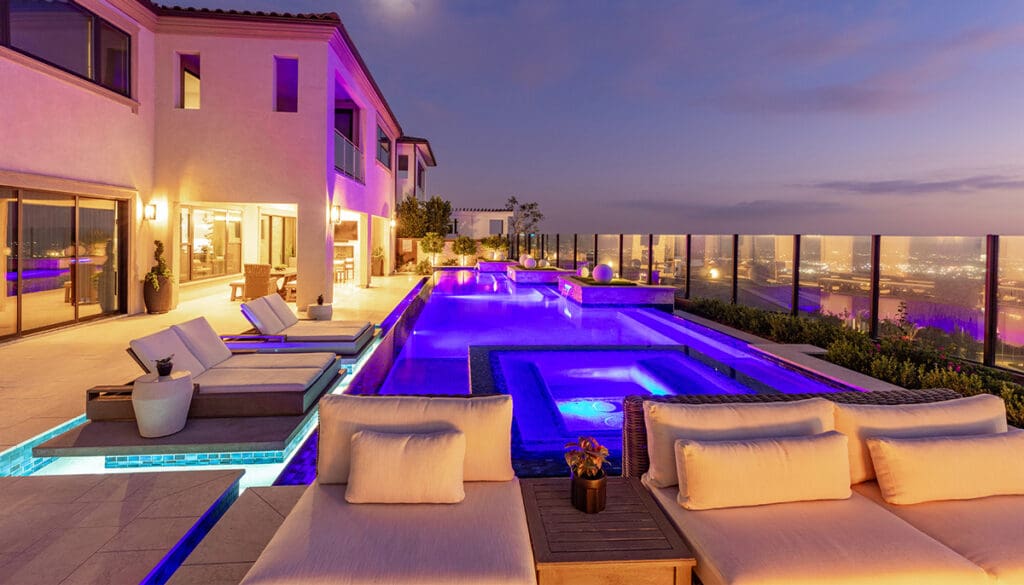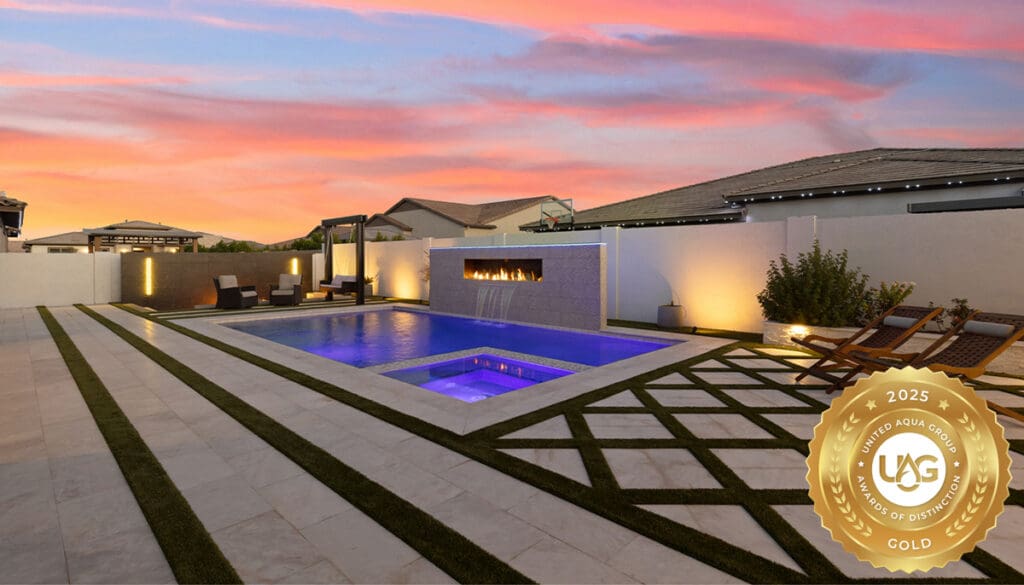Pools aren’t just for summertime. They can be enjoyed year-round when equipped with the right heater. Wondering what type of swimming pool heater is right for your backyard oasis? You’re not alone. Homeowners and business owners have been asking the same question for decades.
The good news is you have a range of options to choose from, and our team will help you pick what’s best. Keep reading to learn about the different types of pool heaters and what benefits each one offers.
Your Guide to Choosing the Right Pool Heater
Not all pool heaters are created equal. Choosing the right heater for your pool requires careful consideration of the following factors:
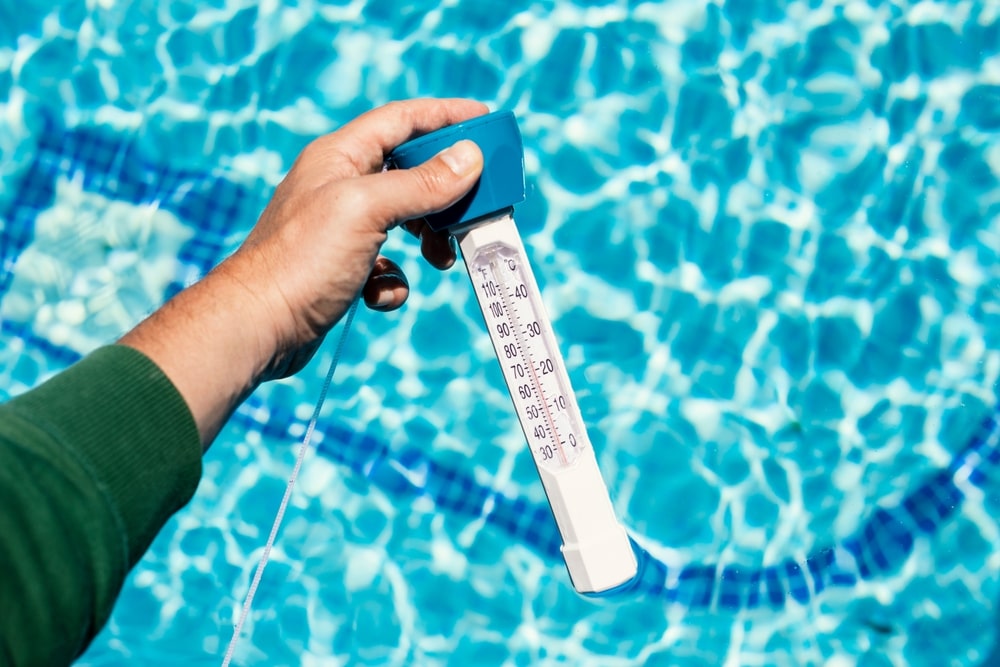
1. The Size of Your Pool
Larger pools require heaters with a higher BTU rating that can provide more energy to heat the water in the pool. Smaller pools can get by with heaters that have a lower BTU rating because they don’t require as much energy to heat the water.
2. The Type of Pool: Above-Ground or Inground
Electric heat pumps work better for above-ground pools, while gas and electric heat pumps work better for inground pools.
3. Your Power Source
Pool heaters can be powered by various sources. Here are the most common power sources, along with their key advantages and disadvantages.
3.1 Natural Gas Heaters
Natural gas heaters deliver quick, on-demand heating. While their upfront cost is low, they’re more expensive to operate over time due to rising gas prices. They’re also not environmentally friendly, and natural gas isn’t always easily available. However, these heaters are a versatile and powerful option.
3.2 Propane Heaters
Propane heaters are another type of gas heater that provide quick, on-demand heat for your pool. Despite their low upfront cost, they have higher operating costs due to rising gas prices. They’re not environmentally friendly and cost more to install than solar and electric heaters. However, they are a highly reliable option compared to other models.
3.3 Solar Heaters
Solar heaters feature solar panels that capture energy from the sun and use it as needed to heat your pool. Remaining energy is stored for later use. Although they have a higher upfront cost than gas heaters, their lower operational costs offset that initial expense. They’re also more environmentally friendly.
Unfortunately, solar heaters take longer than gas heaters to heat pools and are fully weather-dependent. If it’s cloudy outside, you might not be able to heat your pool until the sun comes out again.
3.4 Electric Heaters
Electrical heaters, which are ideal for smaller pools, are relatively cheap to purchase but costly to operate. Their environmentally friendly construction and operation make them a popular choice.
3.5 Heat Pumps
Heat pumps transfer heat from the air to the water in your pool. Just as solar heaters depend on the sun to operate, heat pumps rely on the air’s temperature to function. Although heat pumps are slow to heat the water, they’re energy-efficient and environmentally friendly. They also have low operating costs and can last up to 20 years when properly maintained.
4. Your budget
Gas heaters have a lower upfront cost but cost more to operate over time because gas is more expensive than other fuel types. Electric heat pumps, on the other hand, have a higher upfront cost but are more affordable to operate long-term due to their enhanced energy efficiency.
5. Climate Type
Climate conditions affect what type of heater you need. For example, heat pumps are recommended for warmer areas where the temperature doesn’t dip below 50° Fahrenheit since they use heat from the surrounding air, and solar heaters are ideal for warmer areas since they require solar energy.
Gas and electric heaters, on the other hand, are effective in all climates because temperature doesn’t affect their performance.
6. How Quickly You Want to Heat Your Pool?
Gas heaters offer better on-demand heating, as they only take a few hours to heat your pool to the desired temperature. Electric heaters, however, can take up to a few days to heat your pool. With that said, they do maintain a more consistent temperature once the water is heated.
7. Regulations in Your Area
Different states—and even different areas within the same state—have different regulations surrounding energy usage. What one state considers an acceptable heat source might be banned in another. For example, Texas and California regulate carbon emissions. Consider these regulations when searching for a natural gas or propane pool heater. The one you purchase should comply with all relevant regulations.

Our Recommendations of Pool Heater
It’s relatively easy to determine what type of heater you need, but how do you decide what specific model is best for your pool? The UAG team is here to help. Contact us today to discuss your pool heater options.
Pool Heater for Above-Ground Swimming Pool
- Hayward Universal H-Series 250K BTU
- Hayward HeatPro 50K
- Doheny’s Above-Ground Pool Solar Heating System
Pool Heater for Inground Swimming Pool
- Hayward Universal H-Series 400K BTU
- Hayward HeatPro Heat Pump
- Doheny’s Inground Pool Solar Heating System
Become a Member to Access Discounted Swimming Pool Supplies
Get the pool supplies you need at a discounted price—yes, even pool heaters—when you become a UAG member. Thanks to our partnerships with industry-leading vendors, our members have access to manufacturer-direct pricing and exclusive discounts on all pool products. What are you waiting for? Join now to unlock these unbeatable deals.

